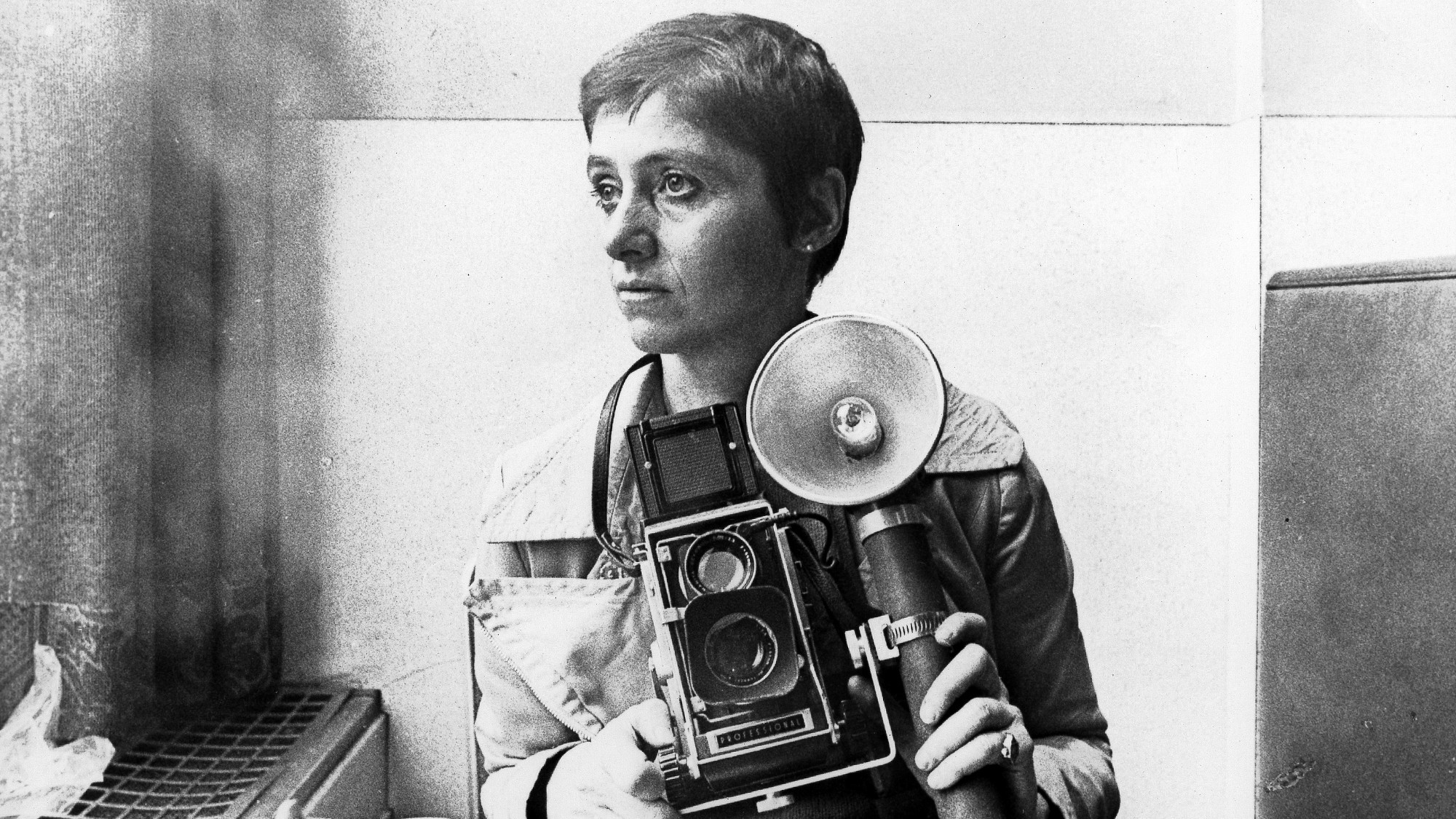Diane Arbus' Constellation is the largest-ever collection of her work
Park Avenue Armory, New York City, through Aug. 17

A free daily email with the biggest news stories of the day – and the best features from TheWeek.com
You are now subscribed
Your newsletter sign-up was successful
The 454 photographs on exhibit in "Diane Arbus: Constellation" are presented "blissfully, almost scarily, free of guidance," said Max Norman in The New Yorker. Hung on tall lattices, her "uncanny" images of sideshow performers, celebrities, average New Yorkers, cross-dressers, and the developmentally disabled lack any chronological or thematic organization. This "disorienting" effect, replicated from the show's 2023 debut in France, proves "revelatory" as the images, unyoked from backstories, reward unfiltered contemplation. Arbus' best photographs "haven't lost a watt of their power," including Xmas tree in a living room in Levittown, L.I. 1962, a "tragedy starring a tinseled pine and a plastic-wrapped lampshade," made as Arbus shifted from artsy street photography to an "unvarnished aesthetic of everyday life." Formally, she employed the "crime-scene chiaroscuro of Weegee," but she also engendered electrifying intimacy through "prolonged, trusting encounters with her subjects." This culminated in her most "straightforwardly beautiful picture," an untitled shot from 1970-71 depicting "a radiant girl emerging from a swimming pool like Venus from the waves."
Arbus drew most of her subjects from her native New York City, making this largest-ever collection of her work "feel something like a homecoming," said Joanna Solotaroff in Vogue. Born in 1923 to a wealthy family, she took up photography after marrying her childhood sweetheart, Allan Arbus, also a photographer, and the two ran a commercial studio. In the late 1950s Diane, encouraged by her mentor Lisette Model, began taking the candid photos she became known for. One expects "ripples of unease" at an Arbus exhibit, so "I averted my gaze at the monkey cradled like a baby and the angry glares of certain men." Instead, I locked on to a "jolly, moneyed woman whose apparent pride in her appearance evoked both a wave of embarrassment and terrific affection." These are the "confrontations of beauty, tenderness, and strangeness" that New Yorkers experience every day.
Indeed, "every Arbus portrait is its own primordial encounter with otherness," said Will Heinrich in The New York Times. Even without the unusual layout, "confronting all these people at once would be overwhelming." At first, I had the impression that Arbus' "real subject may have been simply the color black." The background of her portrait of Bertolt Brecht's widow "has the inky grandeur of outer space" while James Brown backstage at the Apollo Theater, N.Y.C. makes the singer look "like a supernatural shadow come to life." Yet the 1970s image Masked woman in a wheelchair, Pa. spoke clearly to me. Holding a witch mask to her face, the elderly subject seems "to be revealing her real self rather than hiding it." As Arbus said months before her 1971 suicide: "A photograph is a secret about a secret. The more it tells you, the less you know."
The Week
Escape your echo chamber. Get the facts behind the news, plus analysis from multiple perspectives.

Sign up for The Week's Free Newsletters
From our morning news briefing to a weekly Good News Newsletter, get the best of The Week delivered directly to your inbox.
From our morning news briefing to a weekly Good News Newsletter, get the best of The Week delivered directly to your inbox.
A free daily email with the biggest news stories of the day – and the best features from TheWeek.com